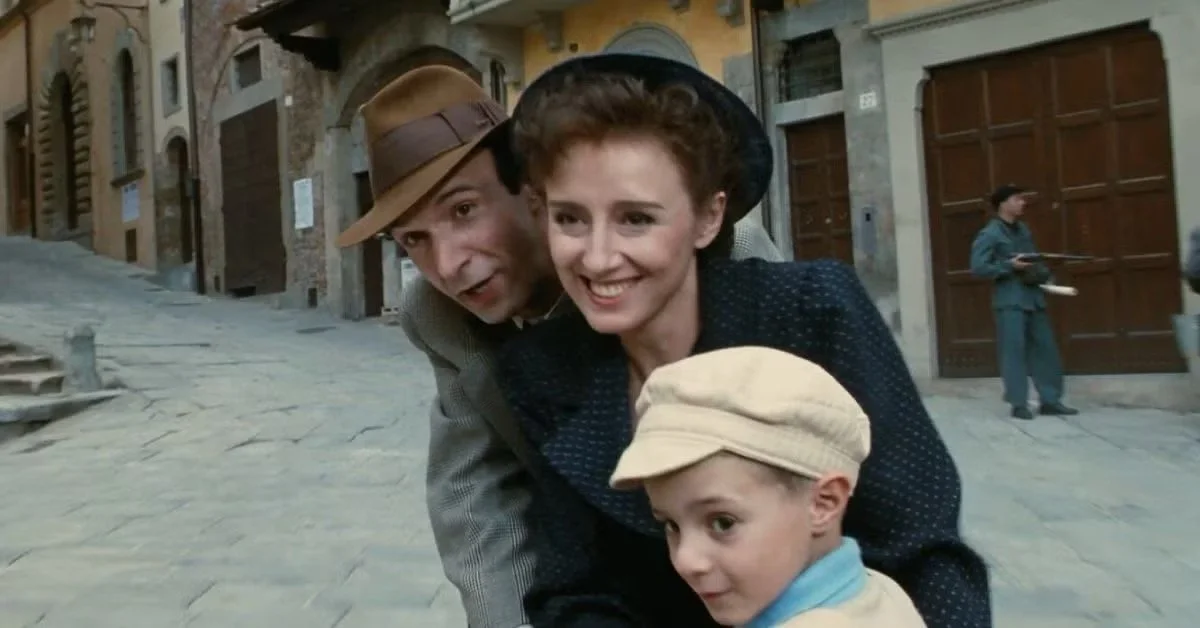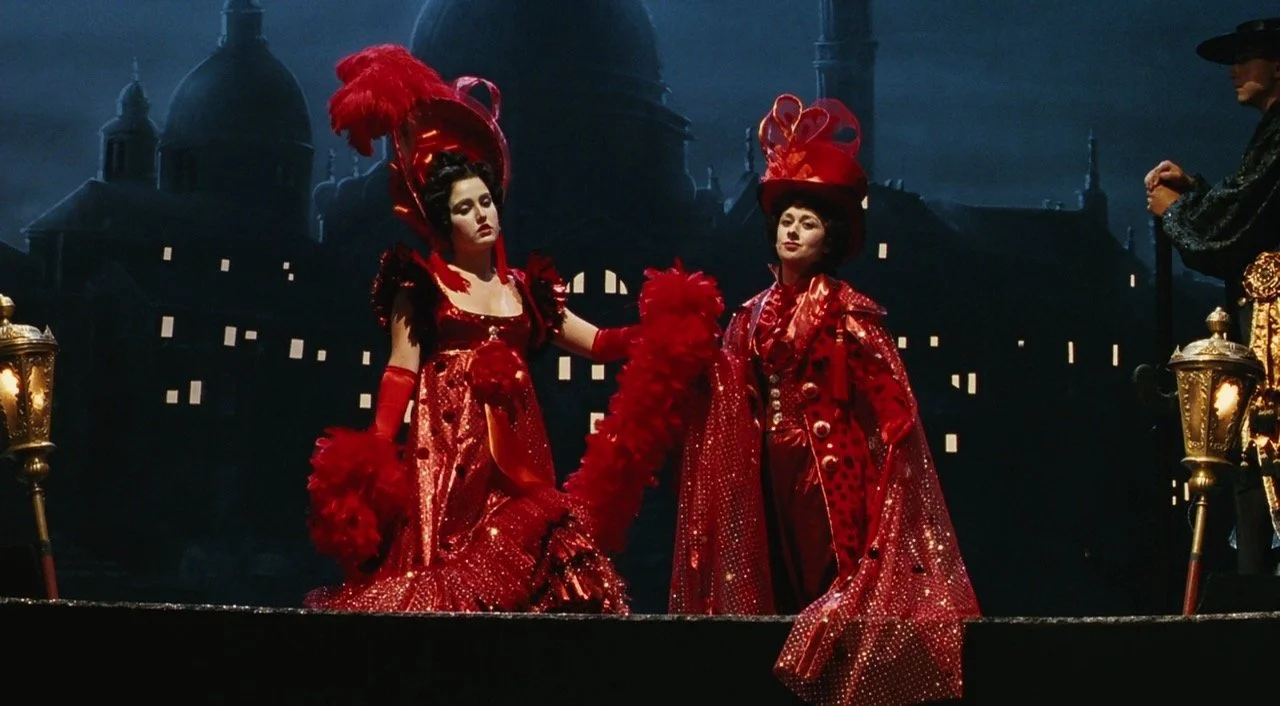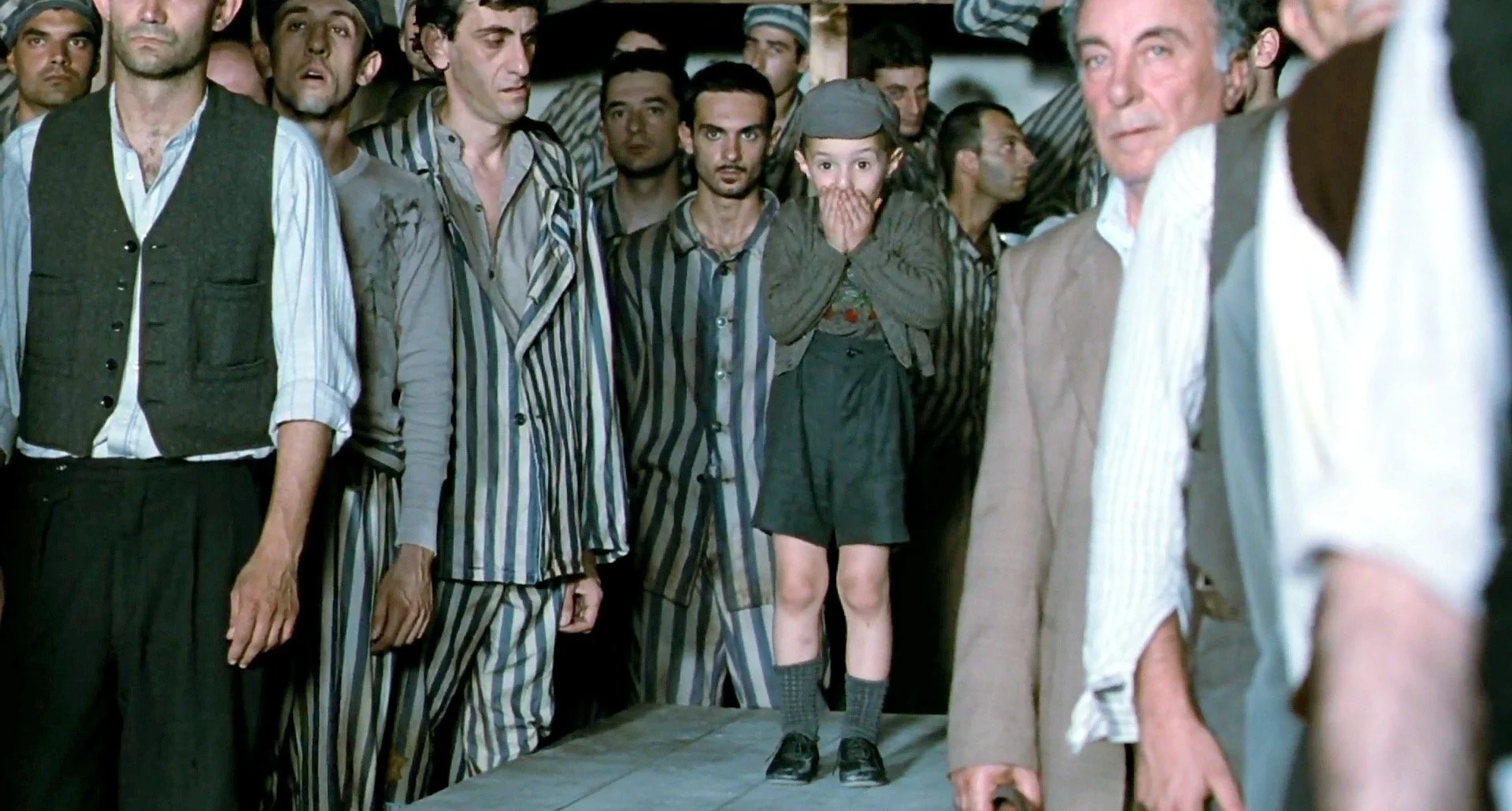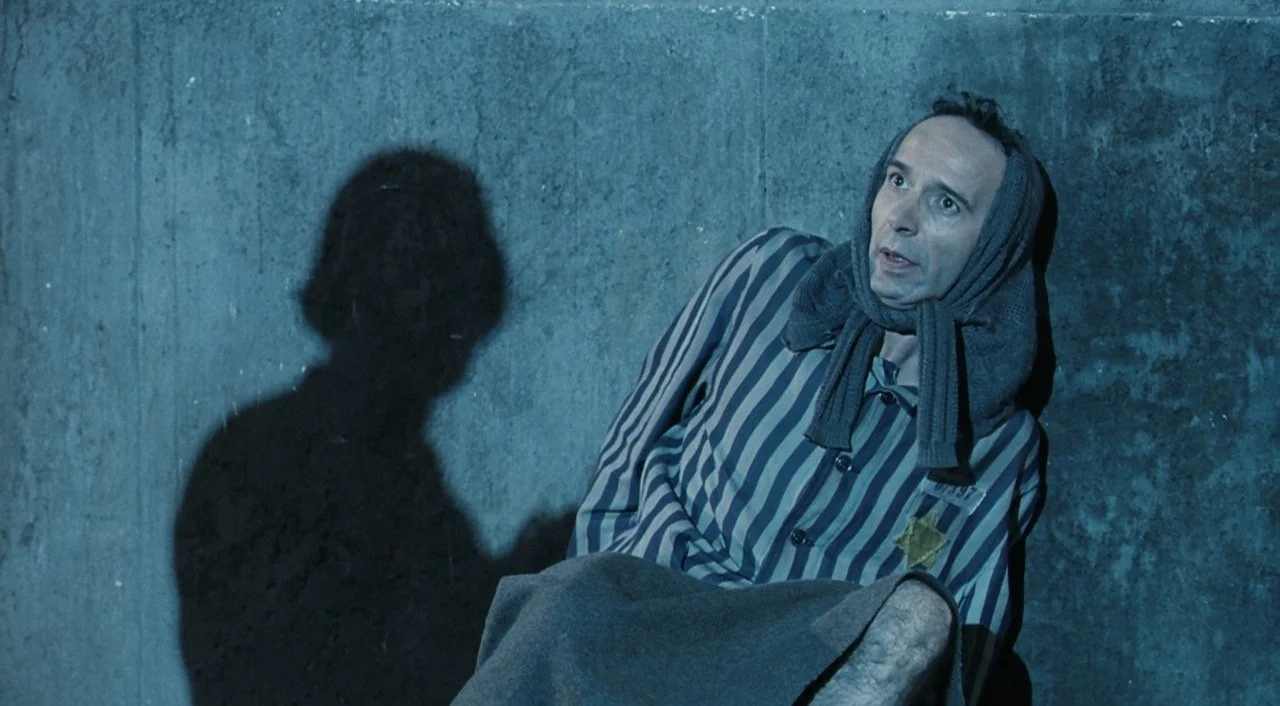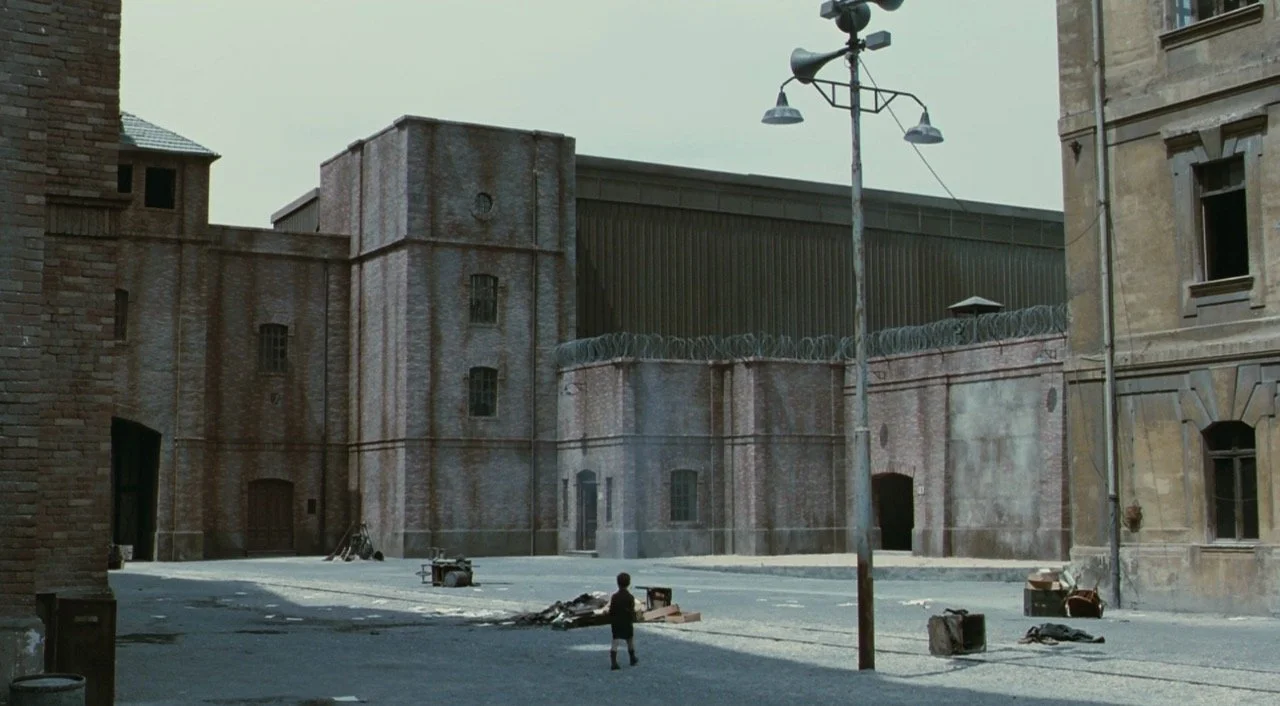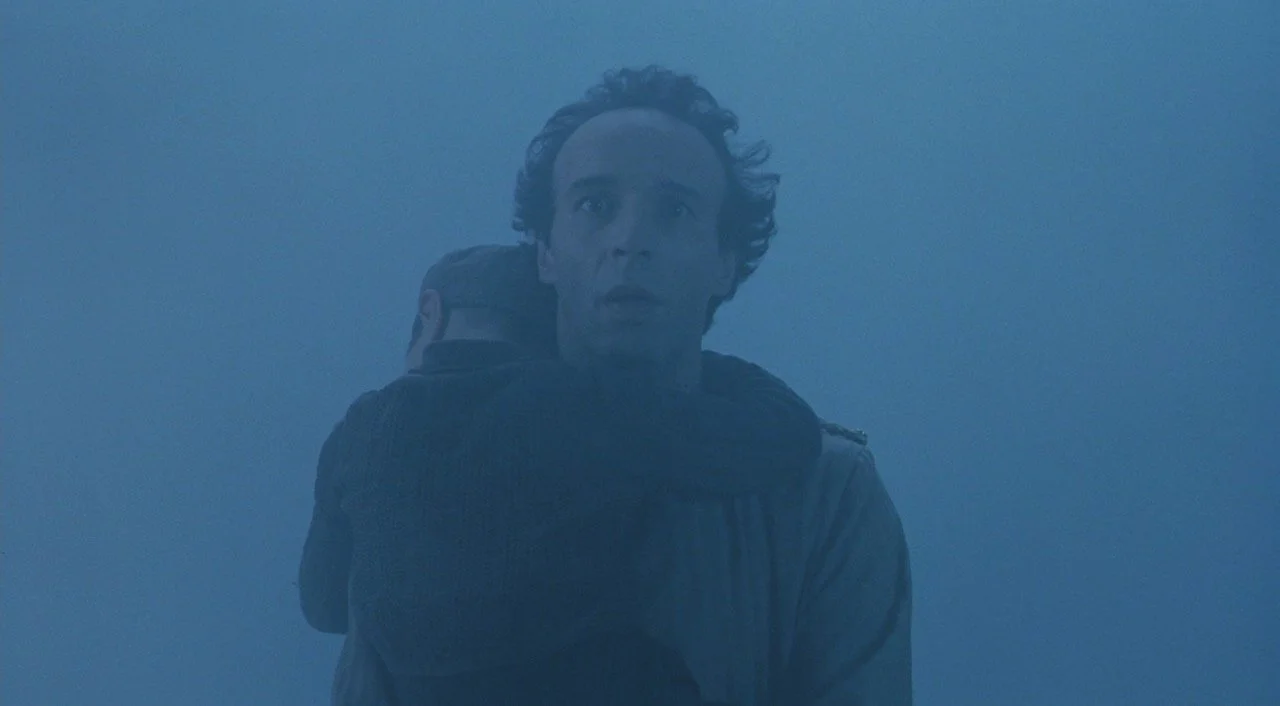Vedere Tutto Rosa
Directed by Roberto Begnini, Life Is Beautiful (La Vita É Bella) (1997) is an absolute gift of a film wrapped in nuances of both beauty and terror. The Italian film stars Roberto Begnini as Guido, Nicoletta Braschi as Dora, and Giorgio Cantarini as Giosué. Throughout the film, we immerse ourselves into the life of an ever-optimistic Guido, who makes a living as a Jewish librarian, in Italy slowly falling under the German Nazi party during World War II. While we see Guido as the human embodiment of sunshine with his ability to aptly solve riddles and be witty on his feet, we also witness the harrowing life of the average Jewish person in a concentration camp. It is when Guido sweeps away the love of his life, Dora, and starts a family, that his worst fears come to life. Guido, remembering that he has an innocent son that still hasn’t been exposed to the harshness of living the Jewish experience, does all he can to protect his son and his wife from the cruel Nazi grip.
While each aspect of this film begs you to watch it, for the sake of discussion, I will be elaborating more on the depiction of Italy’s descent into Nazism, the importance of color in the film, and Roberto Begnini’s Best Actor acceptance speech at the 71st Academy Awards.
▫
▫
Italy’s Descent Into Nazism: Without explicitly stating to viewers that Nazism was cropping up in Italy, Begnini and co-writer Vincenzo Cerami add subtle details showing the Nazi occupation in Italy from the very early stages to the more prominent. Here are some examples:
A furniture owner’s sons are named Benito and Adolph as a nod to Italy’s fascist leader Benito Mussolini and Germany’s leader of the Nazi party Adolph Hitler.
Guido impersonates a government official and explains to a room of schoolchildren what the “superior race”, otherwise known as the Aryan race, is. Instead of talking about the blonde hair and blue eyes that distinguish the “superior race”, Guido points out everyone’s similarities that unites them. (p 32-33)
Guido’s son, Giosué, reads a shop sign reading “vietato l’ingresso agli Ebrei e al cani” (translated: “no Jews or dogs allowed”) and asks his father why that is. As they walk, Guido explains that they are simply just two things that the shop owner dislikes. He says, “…un negozio là c'è un ferramenta no lloro por esempio non fanno entrare gli spagnoli e i cavalli…” (translated: there’s a hardware store over there, they won’t let Spaniards or horses in).
Antisemitism is present throughout the film, but Begnini and Cerami do an excellent job of relaying the intensity of it as time passes.
▫
▫
Color: The beginning of Life Is Beautiful is filled with bright, technicolor-like hues that bring the film’s title to life. We are introduced to a vibrant Italy, one that is very similar to Guido’s vibrant outlook on life. The first half of the film seemingly projects his colorful nature and joviality onto the screen by using brilliant colors. On the other hand, the second half of the film is a display of Guido’s dull, depressed inner monologue after being sent to a concentration camp. Flipping through the stills from this film as if it were a photobook brings the realization that the director of photography Tonino Delli Colli had each intention of painting our protagonist’s mind onto canvases of both 16mm and 35mm film.
▫
▫
The Acceptance Speech: You all know that for at least 4 months of the year, film awards season takes up a big part of my personality. Of all the acceptance speeches I have watched back, Roberto Begnini’s speech at the 1999 Oscar Awards has to be my favorite. Following his win for Best Foreign Language Film, Begnini physically climbed over each row of seats and bunny-hopped onto the stage with joy whilst cheering with pride. In the video below, he describes the feeling as a “hailstorm of kindness”. Only a handful of names come to mind when I think of phenomenal acceptance speeches, and Begnini is easily in my top three.
▫
▫
Life Is Beautiful (1997) is an indescribable film that will sit with you throughout your whole life. The film’s runtime of 116 minutes serves as a commemoration for the Holocaust which took place in Italy alongside the reminder that delivering a life lived through rose-colored glasses for those you truly and deeply love is worth it for the sake of their happiness. Roberto Begnini ensures with each viewing that Jewish souls crucified in Italy and across the globe not be forgotten for their strength during an inhumane period.

